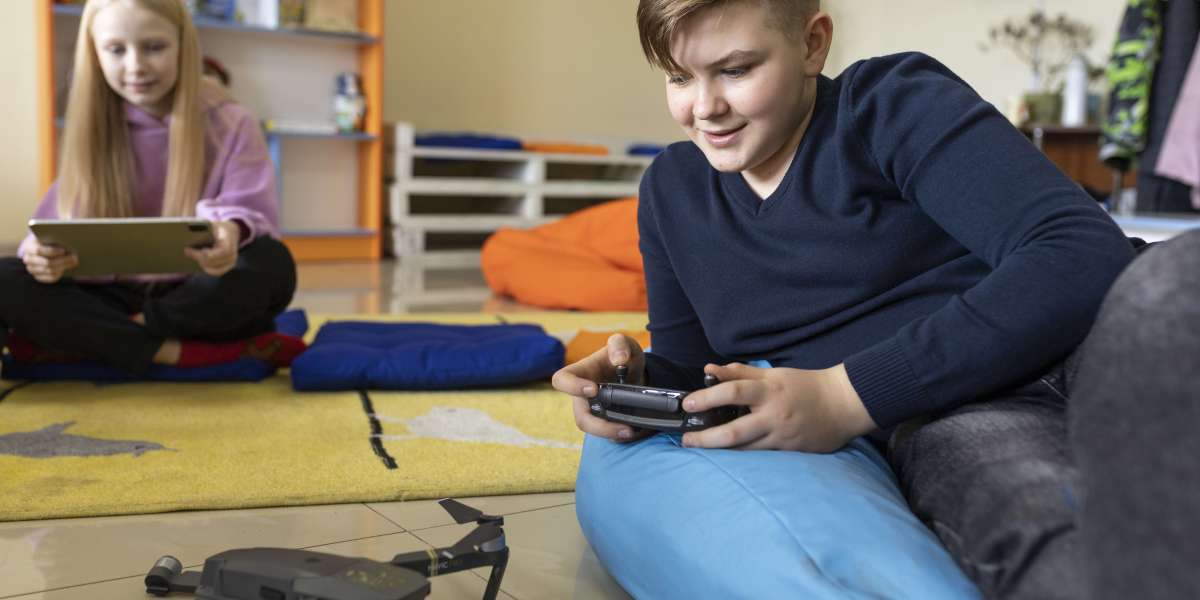In recent years, Fortnite has become more than just a game — it has evolved into a global phenomenon among children and teens. With its vibrant graphics, fast-paced action, and addictive reward system, it’s no wonder that millions of kids log in daily to battle it out in the popular battle royale. But behind the flashy skins, emotes, and competitive gameplay lies a growing concern: Fortnite addiction in kids. For many families, what started as harmless entertainment has turned into an unhealthy obsession, raising alarms about the emotional, social, and academic impact of excessive gaming.
What Makes Fortnite So Addictive?
Fortnite is uniquely designed to be engaging and habit-forming. Unlike traditional video games, Fortnite offers constant updates, in-game events, and social features that keep players coming back. It blends aspects of survival, building, and shooting, making it appealing to a wide age range. But it's the game's structure — particularly the use of "battle passes," limited-time events, and randomized rewards — that taps into the psychology of addiction.
The dopamine-driven cycle of reward and anticipation in Fortnite mirrors the mechanisms seen in gambling. Players feel a rush when they win, level up, or acquire new skins. And because the game is online and ever-evolving, there's a fear of missing out (FOMO) that encourages kids to play constantly so they don’t fall behind their friends or miss exclusive content.
Warning Signs of Fortnite Addiction in Kids
While not every child who plays Fortnite is addicted, there are key signs that can indicate a problem. These include:
Excessive playtime: Spending hours each day playing, often to the exclusion of other activities.
Irritability or mood swings when not allowed to play or when asked to stop.
Neglecting responsibilities, such as homework, chores, or family time.
Decline in academic performance or school attendance.
Social withdrawal, preferring Fortnite over real-life interactions.
Physical symptoms, such as sleep disturbances, headaches, or eye strain.
When play begins to interfere with daily functioning, it’s no longer just a game. Fortnite addiction in kids can impact their mental health, relationships, and development in significant ways.
The Role of Parents and Environment
Parental supervision — or lack thereof — plays a crucial role in the development of gaming dependency. In many households, Fortnite has become a digital babysitter, allowing parents a break while children immerse themselves in their virtual world. But without boundaries and conversations around screen time, kids are more likely to fall into patterns of compulsive play.
Moreover, peer pressure and social dynamics can also fuel addiction. Fortnite is not just a game but a social platform. Kids often play with classmates, share gameplay clips, and discuss strategies, making the game a central part of their social lives. Refusing to play can sometimes lead to feelings of exclusion, which further incentivizes continual engagement.
Emotional and Psychological Impact
Fortnite addiction in kids can have long-term emotional and psychological consequences. Some children become deeply attached to their in-game identity, valuing it more than real-world achievements or relationships. This can lead to low self-esteem, anxiety, and even depression, particularly when things don’t go their way in-game.
Sleep deprivation is another major issue. Many kids stay up late to finish a match or complete challenges, leading to chronic sleep loss, fatigue, and difficulty concentrating in school. Additionally, the intense nature of the game can increase stress levels and create dependency on the game for mood regulation.
Academic and Social Consequences
As kids become more engrossed in Fortnite, academics often suffer. It becomes harder for them to focus on homework or attend school consistently. Grades drop, and teachers may notice a lack of engagement or participation in class. The instant gratification provided by games contrasts with the patience required for studying, making traditional learning less appealing.
Socially, children who spend excessive time gaming might struggle with real-life interactions. They may find it difficult to connect with peers outside of the gaming world, or become irritable and isolated. Over time, this can impair social development and reduce their ability to form meaningful relationships.
Setting Healthy Boundaries
Fortunately, Fortnite addiction in kids is not irreversible. The first step is recognizing the issue and opening a dialogue with your child about their gaming habits. Here are some strategies parents can implement:
Set clear time limits on screen use and stick to them.
Encourage balance by promoting offline hobbies, sports, and social activities.
Create tech-free zones in the home, especially in bedrooms and during meals.
Monitor game content and interactions to ensure a safe gaming environment.
Model healthy screen use by limiting your own device time.
Use parental controls and in-game tools to manage playtime and purchases.
Reward positive behavior outside of gaming, reinforcing that real-life achievements matter more.
If the addiction seems severe, consider consulting a child psychologist or therapist who specializes in digital addiction. Cognitive Behavioral Therapy (CBT) and family counseling can be effective in helping kids break their dependency and develop healthier coping skills.
Educating Kids About Digital Wellness
It’s not enough to limit screen time — we must also teach kids how to use technology mindfully. This includes understanding the design behind addictive platforms, recognizing emotional triggers for gaming, and learning how to self-regulate. Schools and communities can support this by incorporating digital literacy and mental health education into their curriculums.
Encouraging open conversations around technology, mental health, and balance is key. Kids should feel empowered to enjoy games like Fortnite responsibly without falling into harmful patterns.
Conclusion
Fortnite is not inherently bad. In moderation, it can be a fun, creative, and even social outlet for kids. However, when gaming takes over, it can have real and damaging consequences. Fortnite addiction in kids is a growing issue that parents, educators, and mental health professionals must address with urgency and empathy.
By setting healthy boundaries, fostering open communication, and supporting kids in finding balance, we can help ensure that play remains play — and doesn't become a problem.



